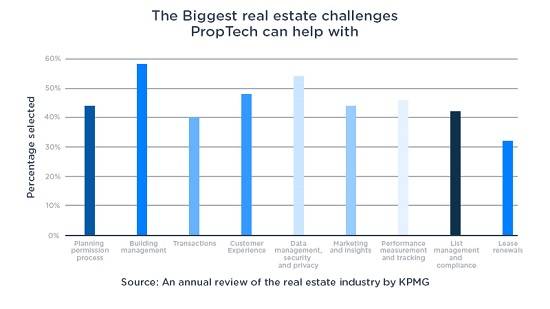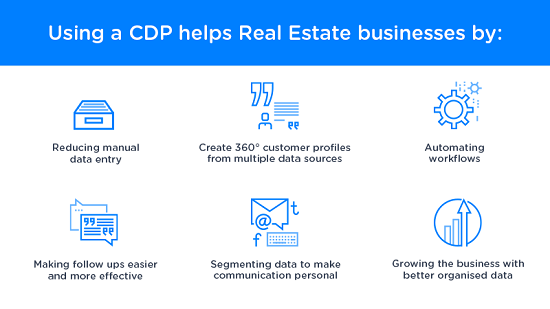- Proptech: the real estate revolution
- The rise and rise of Proptech
- The challenge
- Where do I start?
One explanation could be simple resistance to change: the ‘it’s worked for us until this point, why change?’ attitude. Another, perhaps better, explanation is a lack of qualified people within the housing industry able to manage the change – new technology can be daunting and, if chosen poorly, it can also be very expensive. Fear of getting it wrong could be a major factor holding the industry back from embracing the benefits of technology. Thankfully, Property technology or ‘Proptech’ is finally showing signs of acceptance and growth and there are a number of self-service offerings to take the pain out of the transition. Let’s look at how and why your business should be investing in Proptech.
Proptech: the real estate revolution
First of all let’s dig into the term ‘Proptech’. What does it actually mean? In a nutshell, Proptech is any technology designed for use in the real estate space that streamlines one or more of the processes involved in buying, selling, renting or managing property, whether it be a software, service, or hardware solution.
In practice, the underlying ethos of Proptech is no different to the other ‘-techs’ out there, such as Fintech or Legal Tech. Proptech is designed to make operating in the property market more efficient, faster and more cost-effective.
While the property industry has been relatively slow on the uptake of automation, it’s not immune to the challenges and opportunities that technology presents and that perceived inertia is rapidly turning around and impacting the way we buy, sell, rent, manage and interact with our properties right now.
Global Proptech investments have been increasing at around 36% annually in recent years and there are signs that may increase significantly as the real estate industry hits its stride again post-COVID and more venture capitalists and tech startups eye the property market’s potential.
COVID, as in many other industries, has accelerated the adoption of new technologies as the real estate industry – traditionally used to conducting its business face-to-face – pivoted to virtual viewings and electronically signed contracts. In addition, Proptech has influenced other elements of the real estate industry, such as lead generation, marketing, communication and data organisation.
The rise and rise of Proptech
So beyond COVID necessity, what are the technological driving forces behind the uptake of Proptech, and where are the most significant advances coming from?
MOBILE
Smartphones continue to drive a surge in mobile internet use across almost every industry. Proptech is no different. As millennials continue their efforts to get on the property ladder – or continue to rent property – their property searches increasingly take place on mobile, with 50% of millennials using mobile devices to search for homes and around 26% using them to take the next steps in the home-buying process. Inevitably, as Generation Z begins to take its first steps to home ownership or rental, the ‘digital natives’ will demand a fully mobile, end-to-end real estate experience.
AI
Set to revolutionise the way estate agents interact with their customers, AI and machine learning has the potential to transform the way customer data is used in real estate contacts and transactions. As things stand, property search sites use a relatively small cross section of data to personalise recommendations, but AI has the potential to broaden those criteria to include psychographic preferences, for example.
In addition, AI can be used to summarise lengthy contracts and legal documents and power chatbots, allowing estate agents to focus on qualitative client contacts rather than answering repetitive questions. When teamed with a Customer Data Platform (CDP), AI can help estate agents respond promptly to new leads and focus on priority tasks.
VIRTUAL REALITY
A US study by the National Association of Realtors found that almost half of potential homebuyers used the internet as their first port of call when researching properties. With that statistic in mind, you can see how virtual and augmented reality can play a part in the homebuying process, freeing up estate agents by doing one of the most time-consuming parts of their job for them. It also has the potential to widen the net to buyers that struggle to view properties due to distance or time constraints.
Property managers can benefit from virtual reality, too, by creating a guided tour of a property’s facilities. They could help new tenants or guests familiarise themselves with how to operate the heating system, for example.
SALES & MARKETING
Most of the benefits we’ve covered so far have favoured buyers or renters, but Proptech also benefits estate agents in a wide variety of ways. Enabling more focus to be placed on the customer, it’s opened up a wide variety of communication channels to allow customers to get the information they need fast. From SMS, to WhatsApp, to chatbots; customers can get the details they need quickly and efficiently, and without the need to rely on a human to supply them.
A study by research firm McKinsey found that sales people who adopted AI increased leads and appointments by up to 50%, and they were more able to sustain those relationships to move them to conversion later on.
CUSTOMER DATA PLATFORMS
Implementing a Customer Data Platform is a crucial step to mitigating the impact of the kind of cutthroat competition that’s familiar to those working in real estate. A CDP is also the first step to adopting the types of technology we’ve discussed in this article. CDPs deliver clear data insights that help you to deliver better customer reach and engagement and formulate data-driven marketing strategies that will really work. Not to be confused with DMP and CRM platforms, read our guide to CDPs to see how Customer Data Platforms differ from DMPs and CRMs.
The challenge
What’s clear is that failure to adopt Proptech will leave real estate businesses at a significant disadvantage to organisations that embrace the Proptech revolution, hampering growth and sapping time that could be best spent elsewhere.
This KPMG study shows some of the challenges faced by the real estate sector, many of which can be relieved entirely or partially by the adoption of Proptech.

Where do I start?
Larger organisations may already have the infrastructure in place to realise their Proptech ambitions. But what of smaller businesses? The right technology partner can deliver an end-to-end solution that’s easy to implement without a dedicated IT department. At CM.com, our Mobile Marketing Cloud offers a suite of solutions that can automate a huge range of the marketing requirements needed to run a successful real estate business. In addition, our Conversational AI Cloud can handle time-consuming and repetitive customer conversations and allow your team to focus on following up and converting qualified leads.
Free up your team to focus on quality customer engagement and you’ll not only energise your employees, you’ll also reap the financial rewards.

